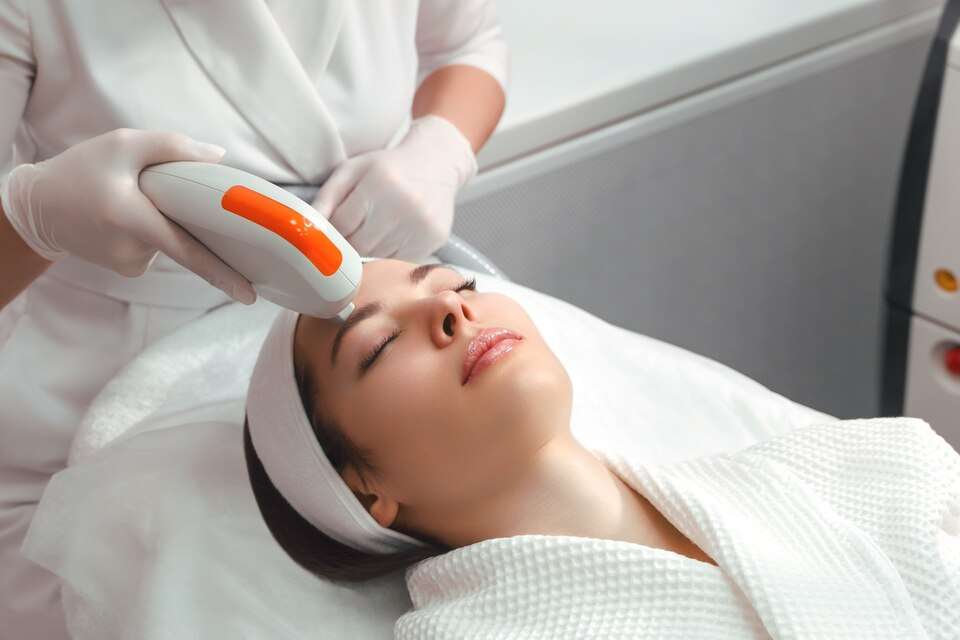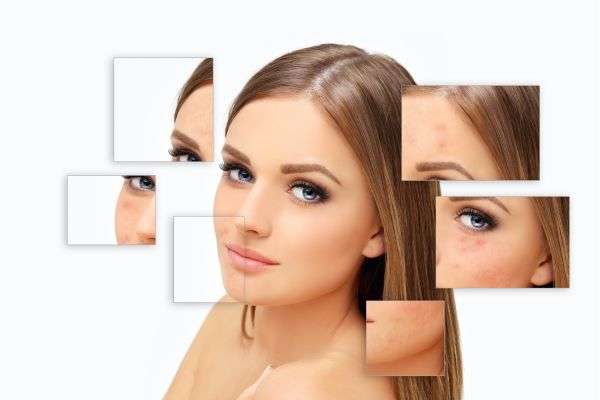Laser skin resurfacing is the finest and most popular way to remove acne scars on the face. It involves putting a concentrated beam of light on the scarred skin to make it slightly hurt and speed up the healing process. Over a dozen lasers are used, so dermatologists and plastic surgeons can personalize a treatment plan to meet your skin’s needs.

But remember that laser removal of acne scars is a cosmetic procedure. That means your health insurance won’t pay for it; you’ll almost certainly have to pay for it yourself. Let’s watch how much it can price to eliminate acne scars with a laser and what variables can change the price.
>>Get Your Secret Guide Here<<
How much does laser removal of acne scars usually cost?
Getting rid of acne scars with a laser usually costs four figures, but the price varies.
- Skin resurfacing can cost anywhere from $1,650 to $3,420 if done by a board-certified cosmetic surgeon.
- In 2020, ablative laser skin resurfacing, which removes the top layer of skin, cost an average of $2,509, and non-ablative laser treatments cost an average of $1,445. (which heats tissue below the surface).
- The average cost per visit to a dermatologist can be anywhere from $400 to $2,500.
- Prices will be lower at a spa or salon, but you probably won’t be treated by a doctor who understands how to use a laser. This means the effects might not be as good, and you might have more side effects.
What factors can affect the price of laser acne treatment?
As we’ve already discussed, laser acne treatment costs depend on the procedure and who does it. But the price is also affected by several other things. Among these other things are:
- Type of laser: Acne can be treated with many different types of lasers. Those newer and treat the skin more deeply tend to be more expensive.
- How many sessions there are: Laser therapy is typically priced per session, but if you pay for a series of sessions simultaneously, you may get a discount.
- How big is the area that requires it to be treated: For example, laser treatment on one cheek will cost less than treatment on your upper back.
- Whether or not the scars have more color: Depending on the laser, darker or redder spots may need more or a different kind of treatment.
- How deep the scars are: Deeper Atrophic icepick scars are harder to treat.
- How your skin looks on its own: When some lasers are used, people with darker skin may need more treatments. This is because having more sessions at the lower strength can lower the chance of side effects, which can happen more often in people with darker skin.
- Laser therapy alone or in combination: Combination therapies can be very useful but expensive. Injectable fillers like Juvederm and Restylane are often used as extras. Your total will likely increase by at least $600 because of fillers.
How many laser therapies are required to remove acne scars?
Most people need between two and five treatments on average. But the number of sessions you require will depend on your scars and the type of laser used. For instance, if your scars aren’t too bad, you might only need one or multiple sessions to see good results.
>>Get Your Secret Guide Here<<
Some lasers, like the stronger ablative lasers, might only need to be used once. The trade-off is that you generally must take more time off after these lasers, and they can have more side effects. They are usually 3 to 4 weeks apart if you need more than one session.

Read Also: How Long Does Laser Acne Laser Treatment Take?
Does acne laser treatment cost coverage by insurance?
Most health insurance plans don’t pay for laser treatment for acne scars because it is cosmetic. This rule is also true for any care that comes after. So if something bad happens with your laser treatment for acne scars and you need more medical care, you’ll have to pay for that too.
Do lasers eliminate acne scars permanently?
Most of the time, laser treatment for acne scars is permanent. But lasers can’t get rid of old scars. The only thing they carry out is to hide the scars. Remember that everyone responds to treatment in their way. The outcome also depends on how well and for how long the person trying to give the treatment knows what they are doing.
>>Get Your Secret Guide Here<<
This is why it’s best to go to a board-certified skin physician or plastic surgeon who utilizes lasers. It would assist if you tried getting rid of your acne before receiving laser treatment for the best results. This keeps you from getting more acne scars after you’ve taken care of the ones you already have.
Alternatives for Surgical Acne Scar Removal
If lasers aren’t an option, additional treatments may be less expensive and assist with acne scars. But relying on how bad your acne scars are and what kind they are, these therapies may not work as well as lasers.
Alternatives for acne scars:
- Fillers injected into the skin, like Juvederm, can cost between $600 and over $1,000.
- Chemical peels, like those that use alpha-hydroxy acids, can cost up to $400.
- It can cost $300 or more to do micro needling.
- Surgery costs $200 or more to remove or fill acne scars.
- About $150 is how much microdermabrasion costs.
- Creams with retinoids, like tretinoin, can cost as little as $10.
- Insurance may pay for steroid injections to treat keloids, which are bumpy scars.
Talking to a dermatologist or plastic surgeon can help determine how to treat your skin problem.
>>Get Your Secret Guide Here<<
Conclusion
It can be upsetting to have scars from acne. Lasers can treat them, which is good news. Most of the time, you require more than one therapy session to bring the best results. Laser treatment is not covered by insurance, though; relying on the type and intensity of the scars, it can cost a lot, up to several thousand dollars. If you want to get rid of acne scars with a laser, you should see a doctor trained to use lasers, like a board-certified dermatologist or plastic surgeon.